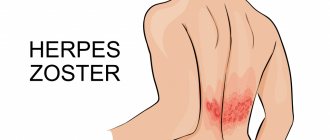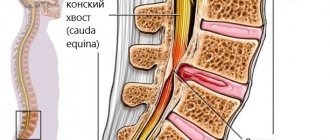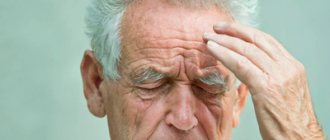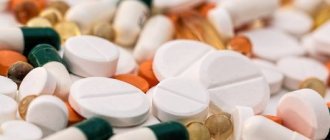Causes
Any form of depression can become prolonged. Most often, it develops into a seasonal form, which initially appears in the spring or autumn, or a postpartum type, which occurs in a woman in the first days after childbirth. Diseases of major, atypical, psychotic, bipolar and physical forms can also become chronic.
The main characteristic of protracted depression is the long period of its manifestation. For children they are one year, for adults – at least two. Usually it is combined with relatively mild symptoms, but even this becomes a big problem for patients. Women experience the disease more often, which is partly due to the fact that men can carry the disease in a latent form for several years.
The chronic type of illness usually becomes the result of depression initially belonging to this type, its natural development or incorrect treatment. Regular stress or a serious mental blow can also lead to it.
Most often, symptoms of prolonged depression appear due to the following factors:
- chronic fatigue, overwork;
- increased responsibility, excessive sense of duty;
- anxiety, shyness, vulnerability, serious fears;
- mental disorders or injuries;
- loss of a loved one or illness;
- making a serious diagnosis;
- the development of certain diseases, especially endocrine ones;
- financial problems, large debts or loss of money;
- difficulties at work, poor relationships with the team;
- conflict situation within the family;
- separation from a loved one or divorce;
- reaching old age and retirement;
- alcohol abuse or drug use.
Most of these factors are faced by young girls, which also causes the widespread spread of the disease among women. In some cases, it is enough to endure any of the listed events once, while in others the psyche can cope with problems tens or hundreds of times.
Most often, a protracted type of depression manifests itself in the spring or autumn months, and the presence of obvious causes does not always occur.
Causes of depression
For a long time, the fundamental monoamine theory of depression has remained crucial in understanding the causes of depression, as well as in the development of new drugs for its treatment. According to this theory, a functional deficiency of norepinephrine and serotonin in certain brain structures plays a role in the development of depression. It is believed that such a deficiency may arise as a result of: disruption of the synthesis of neurotransmitters, processes of accumulation of neurotransmitters in synaptic vesicles (vesicles); release of serotonin and norepinephrine into the synaptic cleft during a nerve impulse; reuptake of neurotransmitters by the presynaptic terminal and destruction by enzyme systems (MAO).
It is believed that antidepressants, by inhibiting neurotransmitter reuptake or blocking MAO activity, increase the activity of norepinephrine and serotonin at specific receptors on the postsynaptic membrane, thereby increasing the efficiency of synaptic transmission.
On the one hand, chronic depression may have an endogenous origin, when a functional deficiency of monoamines occurs due to metabolic disorders in the central nervous system, or due to other biological processes - a decrease in the level of certain hormones caused by endocrine, infectious, genetic diseases. On the other hand, chronic depression is of psychogenic origin. These are psychological trauma, stress, death of a loved one, loss of a source of income, etc., which in turn leads to the same changes in the exchange of monomaniacs.
The character of a person, his personal characteristics often determine the picture of any disease, including depression. People exposed to the influence of external stress factors fall into the network of this disorder when, for example, there are such personal qualities of a person as excessive diligence, perfectionism, conscientiousness, an attempt to lead a lifestyle imposed by someone, abandonment of one’s own hobbies and self-realization. Most often, this problem affects residents of large cities who have a too fast pace of life, lack of physical activity, forced restriction of sleep, etc. The nervous system of such people is weakened, and resistance to irritants decreases.
Symptoms
With prolonged depression, the symptoms are usually not as pronounced as during an exacerbation of this disease of the usual type. Its most notable symptom under any circumstances and reasons for its development is a sad state. It can be present in many different forms, causing different feelings. But the main distinguishing feature of all symptoms of deep depression is the long period of their manifestation.
What other signs can be used to recognize prolonged depression:
- tearfulness, melancholy state;
- apathy, lack of interests and desires;
- depression, feeling of hopelessness;
- self-flagellation, remembering old mistakes;
- intrusive negative thoughts;
- anxiety, development of fears;
- decreased self-esteem;
- loss of meaning in life and all goals;
- a feeling of misunderstanding from others;
- distrust of people, refusal to help;
- problems sleeping, insomnia;
- loss of appetite, nausea;
- increased fatigue;
- decline in sexual desire;
- desire for loneliness;
- deterioration of intellectual activity.
Such symptoms are identical to major depressive disorder, but they occur not only simultaneously, but also separately. Along with them, other dangerous manifestations of this disease may come. If a person remains in this state for a long time, there is a high risk of facing serious consequences. The least harmful can be considered nervous breakdowns, deterioration in appearance, and loss of physical strength. The main danger of this condition is the desire to commit suicide. This is due to the complete loss of the meaning of life.
Features of the disease in children
Adults are much more resilient. And the fragile psyche of children can suffer from such insignificant factors that their parents could encounter every day without experiencing any consequences. Most often, prolonged depression in childhood develops for its own reasons.
What usually provokes the disease in children:
- long-term treatment of various diseases;
- damage to the nervous system;
- tendency to suspiciousness, nervousness;
- unfavorable family environment;
- presence of mental disorders.
For some children, all it takes is one big fight between their parents to become depressed. Others are able to endure this many times, but any of the subsequent conflicts can lead to the development of the disease. At the same time, the signs of deep depression in childhood are practically the same, but some features do occur.
Special features of childhood depression:
- regular quarrels with loved ones, outbursts of aggression;
- low intellectual abilities, problems at school;
- belief in lack of value for parents;
- indecisiveness, constant feelings of guilt, isolation;
- Constant thoughts about death or the desire to die.
With low-grade depressive disorders, a teenager may not experience significant symptoms. In such cases, everything is limited to frequent sadness and a negative outlook on the world. But prolonged manifestations of even such mild depression can result in its intensification or dangerous consequences.
Treatment
Some types of depression are classified as incurable. Often this also applies to protracted ones. But even if it is impossible to completely cure the disease, it is possible to achieve suppression of all symptoms and normalization of life. Therefore, it is very important to engage in therapy. Before this, you just need to undergo a diagnosis, including performing mental tests and talking with a psychotherapist. Based on this, the doctor will make a diagnosis and also prescribe therapy appropriate to the case.
Psychotherapy is recognized as the main way to treat depressive disorders. It includes regular cognitive-behavioural, interpersonal and family sessions with a specialist. Their goal is to put the patient’s psyche in order, return him to a positive outlook on the world, establish social activity and achieve relief from all symptoms. Such psychotherapeutic courses can be supplemented by other subtypes of treatment. Usually they are carried out almost daily - at least 3-4 times a week.
The second option for treating prolonged depression is medication. It is aimed at suppressing symptoms, restoring the nervous system and reducing susceptibility to any irritants. It is important to consider that some tablets may not provide a positive effect even after the full course of use. In such cases, the doctor prescribes other drugs until an effective option can be found.
Groups of drugs used:
- stimulating antidepressants (Fluoxetine, Imipramine) – relieve melancholy, apathy and lethargy;
- sedative antidepressants (“Mirtazapine”, “Paroxetine”) - help fight irritability, anxiety, and sleep disorders;
- herbal sedatives (“Hypericin”) are easily tolerated medications that suppress symptoms of depression when they are mild.
Some drugs increase anxiety. This is especially true when treated with stimulant antidepressants. In such situations, tranquilizers may be prescribed to normalize the condition.
Electroconvulsive therapy provides good assistance in the fight against depression. It involves deliberately stimulating seizures through electrical stimulation. The result is the production of mood-enhancing substances.
Depression. Part II: how to treat it and how not to treat it
Continuation. Part I was published on December 23, 2014.
Continuation of the educational program about depression, from which the reader will learn how psychiatrists, psychologists, psychoneurologists and psychotherapists differ from each other, how they select therapy for different patients, what the consequences of refusing medications are, when pills and other medications become dangerous, how these medications work, why not you need to drink Corvalol and Valocordin, and also self-medicate.
Where to run
One of the reasons why very few patients with depression in our country ever reach a specialist is that almost no one has a clear understanding of what kind of specialist is needed here?
“People, firstly, are afraid of all those whose profession names contain the root “psycho,” and secondly, they often get confused with them,” confirmed Svetlana Minskaya, psychiatrist, psychotherapist. — In short, the gradation is as follows: a psychiatrist is a doctor. He has a medical education, he can prescribe medications, his field is various psychopathological conditions (i.e., deviating from the norm), which include depression. But a psychologist is not a doctor. He has a humanities education, he “treats” only with words, and mainly - situational problems of healthy people; as a rule, he does not work with pathologies. Meanwhile, very often people with depression turn to a psychologist. More precisely, psychologists can work with depression, for example, using cognitive behavioral therapy, however, having discovered symptoms of depression in their client, the psychologist must also refer him to see a psychiatrist. In practice, unfortunately, this does not happen in all cases - a psychologist, due to the lack of medical education, cannot always “calculate” in time the symptoms indicating that a person needs medical help.
The biggest confusion is with psychotherapists. The fact is that until recently, a psychiatrist, a doctor of any other specialty, and a psychologist could obtain a “credential” as a psychotherapist in our country. Today this is the prerogative of psychiatrists. Further, it is very important to keep in mind that psychotherapy is not a direction in medicine, but a method of treatment. Psychiatric treatment is “addressed” to the symptoms of the disease, and psychotherapeutic treatment is addressed to the patient’s personality. In general, the most correct answer to the question “who should I go to with depression?” will be “to a psychotherapist whose main specialty is a psychiatrist.” By the way, there are also psychoneurologists in clinics. In essence, these are “renamed” (including so that people are not afraid) psychiatrists. They can also be approached for symptoms of depression.”
Why run
In some cases, depression, which has prevented a person from living a normal life for years, can be “liquidated” very, very quickly. “I have seen more than once how people with quite severe depression, due to which they quit their jobs, lay on the couch all day long and aroused the real hatred of their relatives, after starting treatment, they were completely transformed in just a month and a half. — said Dmitry Martynyuk, psychiatrist, psychiatrist-narcologist, psychotherapist. - But, of course, this does not always happen. Some take two weeks, some take two months, some take six. There are very resistant depressions, in which treatment can take several years. But even if the result is not visible immediately, you still need to be treated. We must not forget that depression comes in varying degrees of severity, and in severe conditions, if left untreated, the consequences can be not only maladaptation and low quality of life, but also suicide. A sad example from practice: a very young man who came to me with quite severe depression was forbidden by his father to take prescribed medications, citing the common statement “pills are for weaklings, my son must be strong.” As a result, his son committed suicide - and this was, of course, not a matter of weakness, but of illness. If he had continued to receive treatment, this story might have had a different ending."
However, mild and even moderate depression sometimes actually “go away on their own” - with age, a change in lifestyle, or, if the depression was reactive, when the traumatic situation is eliminated. However, the key word here is “sometimes.” So if the thought “maybe I’m depressed?” I’ve already visited - it’s worth going to the doctor anyway.
Another thing is that few people can independently determine that they have depression. “Much more often people turn to me simply as a psychotherapist, with some kind of life problem,” said Svetlana Minskaya. “Depression is revealed already during the conversation.”
How is it treated
Depression can be dealt with in two ways: with medication and through psychotherapy. However, there is no one-size-fits-all “correct” treatment. Firstly, because depression varies in type, severity and clinical picture - in different cases, either anxiety, depression, or some other condition may come to the fore. Secondly, because, no matter how trivial it may sound, all people are different, and in this case this is a very significant factor.
“In principle, some depression can be treated with psychotherapy alone, without prescribing psychotropic drugs,” explained Dmitry Martynyuk. “But this applies mainly to mild depression, and such treatment takes a very long time. Most often, a combination of medications and psychotherapy is used. In what proportion depends on the individual patient. For example, if a person “doesn’t believe in these pills of yours,” the emphasis is on psychotherapy. When first treated with a depressive episode, medications are most often prescribed, and at first it is very important to tell the person in detail about what kind of illness he has, explain how the drugs work, and so on.”
“In general, the very explanation of how drugs work and what depression is is already psychotherapy,” added Svetlana Minskaya. “In addition, by establishing contact with the patient and informing him, compliance increases, that is, adherence to the treatment plan. A person will not neglect recommendations, will be less likely to skip medications, and so on. Separately, I would like to note that a conscientious psychiatrist, in principle, will never limit himself to writing a prescription - he will definitely talk with the patient. If this does not happen, this is, in general, a serious signal that you should look for another doctor.”
The selection of medications also occurs on an individual basis. “Since drugs should not only help, but also not harm, the doctor takes into account many factors, including those not directly related to the symptoms of the disease,” explained Svetlana Minskaya. — In addition to the objective picture of the disease and the patient’s complaints, his age and gender, the presence of concomitant, not only mental, diseases, allergies to any drugs or products, taking other medications (no matter whether they were prescribed by a doctor or chosen independently), lifestyle, bad habits, and even the type of professional activity and level of income.”
Antidepressants and others
The main treatment for depression is, as you might guess, one or another antidepressant. Since at the biochemical level, depression is an abnormal exchange of neurotransmitters (serotonin and norepinephrine), accordingly, the task of antidepressants is to normalize it. These drugs regulate the release of serotonin and norepinephrine into the synaptic cleft, as well as their reuptake and the activity of the MAO enzyme that destroys them. There are many groups and subgroups of antidepressants, many of which, despite different mechanisms of action, can produce the same effect. “From a practical point of view, we can distinguish the “old generation” antidepressants, the so-called tricyclics, and the latest generation antidepressants that affect either serotonin reuptake or MAO activity. — said Svetlana Minskaya. — They differ mainly in the frequency and nature of side effects. Tricyclics are characterized by their more frequent occurrence, and not so much in the mental, but in the somatic area: difficulty urinating, constipation, impaired focusing of vision, and so on. Later generations of antidepressants may have side effects related to the mental sphere, for example, this may be increased anxiety at the beginning of treatment or temporary insomnia. All this can easily be eliminated by adding small doses of other psychotropic drugs.”
If necessary, in addition to an antidepressant, tranquilizers - anti-anxiety drugs - are prescribed. Depending on the patient’s complaints, the doctor may prescribe a night tranquilizer (in everyday life such drugs are called sleeping pills) or a day one, which will allow you to escape from anxiety and concentrate during the waking period. In addition to reducing anxiety, tranquilizers can regulate symptoms associated with the autonomic nervous system, such as the feeling of a “stone in the chest” that often accompanies depression.
Another type of medication often prescribed for depression is nootropics. These substances normalize the functioning of the cerebral cortex, improve memory and mental activity in general, and can also reduce the side effects of other psychotropic drugs.
In some cases, the doctor may also prescribe antipsychotic drugs that will reduce the intensity of depressive thoughts.
About the dangers of self-medication
Since people very rarely go to the doctor with sadness and anxiety, and they have to survive somehow, a variety of “improvised means” are often used - from alcohol to over-the-counter drugs.
“In our country it is very popular to take drugs such as Corvalol, Valocordin or Valoserdin for “nerves”. - Svetlana Minskaya warned. - They are all sold without a prescription and seem harmless, time-tested. In reality, these products are intended only for one-time use - they contain a potent substance, phenobarbital, which, when taken, a person almost instantly feels mental relief, and with a large dosage, a hypnotic effect. Dependence and psychological addiction to this substance develops very quickly. And few people know that phenobarbital greatly accelerates the work of liver enzymes, which subsequently leads to intoxication when taking usual therapeutic doses of other drugs, and as a result, to liver destruction.”
We not only do not talk about trying to choose an antidepressant or other type of medication on your own, but we also categorically do not recommend it. Depression is a case where “traditional medicine” and “common sense” can be the enemy of the patient, and there should be no place for pride and frivolity. We can say that depression is both harder and easier than is commonly believed. It’s harder because it’s a serious disease that cannot be gotten rid of through willpower and a cavalry charge. Easier - because modern medicine is well versed in this phenomenon, at least on a practical level, and in most cases there is every chance of replacing depression with a normal proportion of joy and sorrow.
In the third part of this article we will look at depression from an academic point of view - what is the mechanism of the emergence and development of this neurophysiological phenomenon, is it due to human evolution (perhaps this is a payment for some abilities unique to the animal world), what world science has learned about depression in recent years and in what direction pharmacological developments are moving.
Folk remedies
At home, you can easily cope with some symptoms using traditional medicine. Many recipes suppress sadness, improve the functioning of the nervous system and stimulate the production of joy hormones. They should be used in moderation after consulting a doctor.
One of the most popular folk remedies is warm baths with the addition of beneficial substances. It is best to take them in the morning or late evening. It is enough to add a little of the chosen product to a bath filled with warm water and lie in it for half an hour. Essential oils of lemon, lavender and rosemary, juniper, spruce needles, natural honey, myrtle petals, and infusion of poplar buds are especially effective.
Regular massages are highly effective. Carrying them out on your own can be difficult, but if desired, it is quite doable. You just need to massage your body with light, pleasant movements, lubricating your hands with essential oils that have a calming effect.
You can also get rid of prolonged depression with the help of tinctures or decoctions. They should be taken before meals or before bed. Ginseng root, Eleutherococcus, and Rhodiola rosea are considered very useful. Preparations based on Chinese lemongrass, aralia, mint, valerian, lemon balm, hops, motherwort, lavender and peony are no less effective.
HELP YOURSELF
Getting out of depression is facilitated by a number of steps that need to be taken, taking into account the above. Their effectiveness has been proven by people suffering from different types of this disorder from their own experience.
1. Proper nutrition is very important - a healthy diet allows you to feel good physically and be in a good mood. It does not include everything that is called fast food: Big Macs, grilled chicken, French fries. hot dogs, etc. These instant foods can poison the body and introduce many toxic substances into it. Meat can also be considered dangerous in this sense.
Much healthier are fatty varieties of sea fish, nuts, hard cheese, fruits (especially bright ones), vegetables, and seaweed. Chocolate is a good option, but you need to be careful with it, since excess sweets negatively affect your figure, and extra pounds can, in turn, again provoke depression.
2. Another great way to get out of depression is to normalize your sleep. You shouldn’t use any handy “helpers” to quickly fall asleep and sleep fully until the morning, without waking up from every rustle (this means sleeping pills or alcohol, although folk remedies in the form of decoctions are quite suitable). You can do it this way:
- make it a habit to go to bed strictly at a certain time, and not when you want or as it turns out;
- The most natural sleep pattern for a person is to fall asleep before midnight, or even better, at 10 pm, and get up early. In this case, sleep has healing, restorative properties;
- before going to bed, it is inadvisable to watch the news, films with a negative connotation such as thrillers and horrors, as well as read something like that - this can provoke nightmares;
- dinner should be early and not too heavy;
- the bedroom needs to be ventilated, you can take a warm bath, drink a glass of warm milk with honey, ask a family member for a massage.
3. Physical activity is an excellent way out of depression. We live in an era of physical inactivity, we move little, we lose little energy. But not so long ago, our grandparents, not to mention our distant ancestors, did not have such a problem as depression, although their life was not easy. They worked more physically, traveled on foot, and did not have as many “smart” household appliances to make household chores easier.
Therefore, we need to set aside some time a day for physical activity, be it leisurely walks, running, working in the front garden or in the garden, doing fitness or using exercise equipment, or walking. You need to be in the fresh air more often - it improves metabolism and enriches the body with oxygen.
4. Positive thinking is very important to get out of depression. Color the depressive grayness with bright colors, think about good things, do good to people. Smile, look for the best in others. If someone nearby is completely negative and nothing can be done about it, just reduce communication with him to a minimum.
5. Do what you like. A favorite activity or hobby will charge you with positive energy, allow you to relax faster and better after a hard day at work, and distract you from worries and bad thoughts.
6. To get out of depression you need to pamper yourself and give positive emotions. For women, shopping plays the role of a depressant. And it doesn’t matter what kind of purchases they are, small or large, they will still please you. By the way, shopping is also good for men, but they will not like jewelry, outfits or shoes, but something related to their hobby: fishing gear, a gun for hunting, a tool.
Diversity also brings positive emotions. This could be a trip, going to a restaurant, cinema or theater, or a dolphinarium.
Lead a healthy lifestyle, get rid of bad habits and complexes, treat emerging somatic diseases in a timely manner, do not delve into yourself or whine, avoid stressful situations. You can have a pet - your favorite animals have a positive therapeutic effect on people.
And now about the main thing: in order to get out of depression on your own, you need to appreciate every moment of your life. It is given once and must be enjoyed so that nothing passes by. You should not dwell on failures or consider any problem global. Throw everything out of your head, love and appreciate your loved ones, communicate, enjoy every minute.








